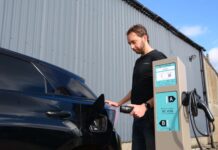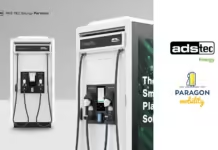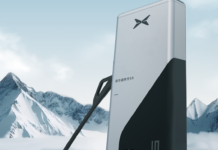Juice Technology AG, producer of electric charging stations and software and the market leader in mobile charging stations for electric cars, conducted a quantitative on-line survey from 12 to 14 October 2020 of charging behaviour and preferred energy use. The survey targeted 5,154 electric cars drivers in Germany, Austria and Switzerland (garnering a response rate of 11.2 percent), with no other socio-demographic criteria considered.
The study by Juice Technology AG’s Research and Development Department was aimed at determining the charging behaviour of users of Juice charging stations, and what role is played by the origin of the electric power used to charge their e-cars. There’s a general suspicion, especially in Germany, that electric cars generate higher CO2 emissions than vehicles with internal combustion engines.
The survey revealed that almost 50 percent of the total mileage e-cars drive is powered by charging at home, while some 22 percent is sourced in the workplace. Only 17 percent of vehicle recharging is done by fast charging, i.e. using super chargers. Eighty-five percent of e-car owners state that it’s either very important or important to them to use clean energy, and that they set particularly great store in green energy when charging at home – with 29 percent of respondents even producing their own power by photovoltaic systems they’ve installed themselves. While their mindset is no different when charging in the workplace, 50 percent of those surveyed admitted to not even knowing where the charging current available at their workplace was sourced. Forty-nine percent indicated, however, that they could recharge at work fully or at least in part with green electricity. As most of the survey respondents live in Germany, these results are especially gratifying given the fact that, generally, only 28 percent of electric power in Germany’s energy mix is generated from renewable energy sources.
Asked whether they would be willing to pay higher rates for clean energy produced in real time, 87 percent responded with an affirmative “yes”: 60 percent of respondents would pay up to 4.89 euro cents more per kilowatt-hour (kWh), and 27 percent up to 3.01 euro cents more. For Germany, this means that the survey respondents would be willing to spend 10 percent or more per kWh if they could purchase guaranteed clean energy in real time.
The takeaway from these results is that electric car owners are highly sensitised to the issue of clean, sustainable power generation. Their vehicles are charged largely at home from predominantly green energy. This unravels any accusations that e-car drivers may ride on electricity, but electric power generated primarily from coal-fired power plants. Likewise, the prevailing attitude among e-car owners appears to be one of ready openness to new ideas for generating and using clean energy. Their willingness to pay more for green power confirms this mindset.
The study at a glance:
- Quantitative on-line multiple-choice survey of users of Juice electric charging stations
- Survey period: 12 to 14 October 2020
- Target group: Electric car owners in Germany, Austria and Switzerland
- Number of owners surveyed: 5.154
- Response rate: 576 respondents (11.2 percent response rate), of which 82 percent live in Germany, 12 percent in Switzerland, and 6 percent in Austria











